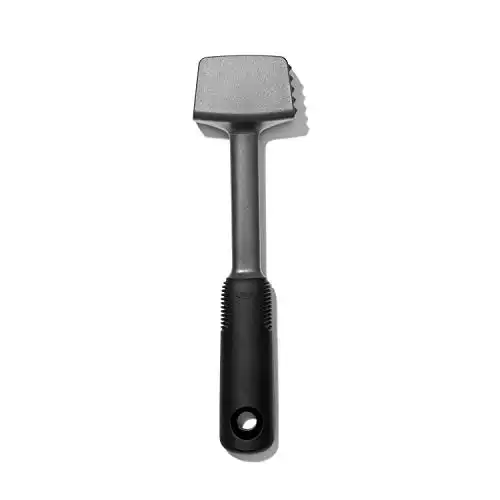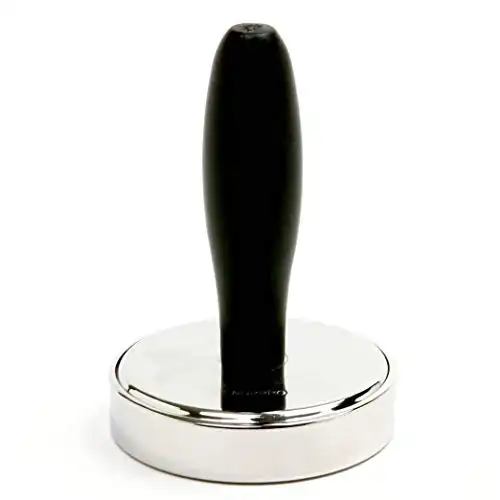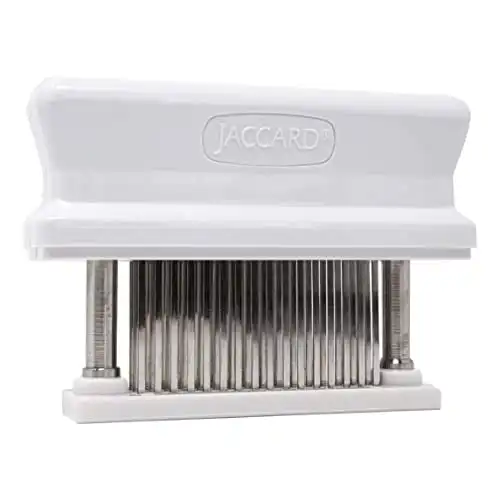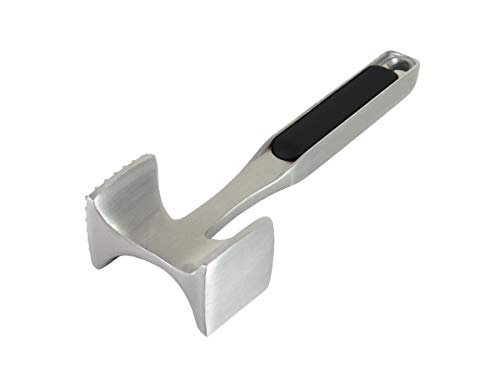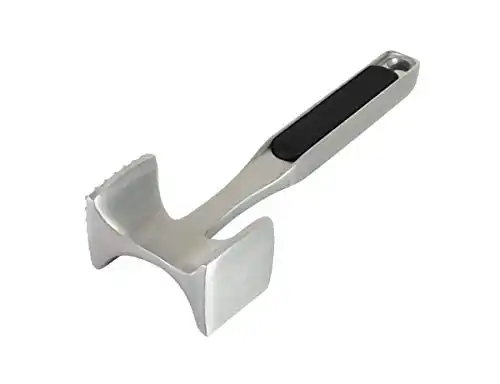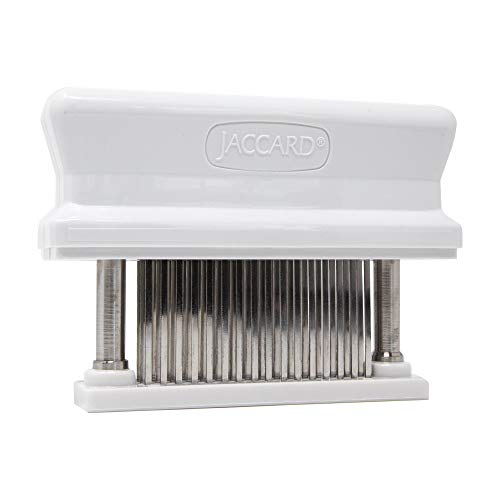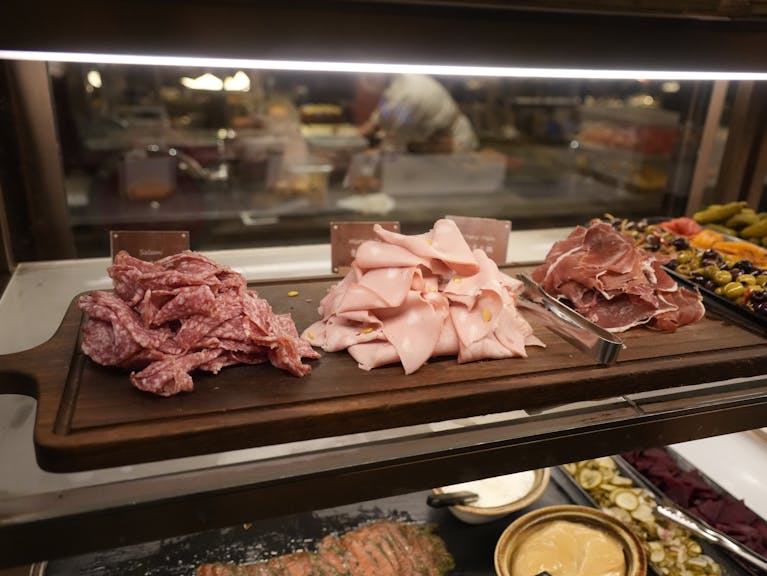5 Best Meat Mallets to Make Your Meat Tender
Using a meat mallet is essential for tenderizing tough cuts of meat, enhancing flavor and texture. Learn about different types, considerations, and where to buy the best ones.

Anyone who has worked in a kitchen likely knows that meat is a fickle thing. Different types of meat can require vastly different cooking methods to coax out their best flavors and textures — and some meats are just downright tough, no matter how you cook them.
So what is an at-home cook to do when faced with a cut of meat that’s closer to shoe leather than dinner? You’ll have to break out the culinary big guns and get yourself a meat mallet (aka “meat tenderizer hammer”).
Ideal for use with tough cuts of pork and beef, meat mallets are also used to make ridiculously tender preparations of chicken. Even if you’re not regularly cooking with chuck roast or bottom round, a meat mallet is a wise investment in your kitchen preparedness.
But not all meat mallets are created equally, and that’s why we’ve put together this guide to explain the ins and outs of finding the best meat mallet for your kitchen. Along the way, you’ll learn about three different types of meat tenderizers, as well as what we advise our friends to look for when they’re buying a meat mallet for their kitchen.
|
Best for...:
Best Hammer Style
|
Best for...:
Best Pounder Style
|
Best for...:
Best Bladed Style
|
By the end of this article, you’ll be fully informed and ready to pick out the right meat tenderizing tool for your home kitchen. Let’s get started!
Disclosure: As an Amazon Associate, this site earns from qualifying purchases. Thank you!
What Is A Meat Mallet?
Also known as a meat tenderizer (though technically it is a type of meat tenderizer) or meat pounder, at its most basic a meat mallet resembles a hammer with a wide, flat head. A lot of users just call it a meat tenderizer hammer. Utilizing leverage and hand-powered force, a meat mallet will help to separate the tough fibrous tissue that makes meat chewy and unappetizing — leading to softer, richer, more flavorful recipes.
As simple a tool as a meat mallet might be, the best meat mallets have nuanced designs that cut down on the amount of work a chef has to do to achieve tender cuts of meat. Our favorite meat mallets are designed specifically to reduce stress on the hands and wrists, making them easier to use without any risk of injury or strain.
A meat mallet can be used for a number of different tenderizing techniques, depending on the design and the type of meat you’re using. Some models are designed to create uniform cuts throughout your meat to maximize surface area — and in turn, flavor. Others encourage long-term marination by creating deep holes that hold marinades and rubs in place.
It’s also worth noting that a meat mallet can be used for more than just ground meats and tender cuts of steak — a heavy-duty mallet can handle anything from whole roasts to birds, providing the right means of applying pressure to your food. Our favorite meat pounders are capable of breaking down an entire chicken into soft, supple meat that practically melts in your mouth.
How Do You Use A Meat Mallet?
The actual process of using a meat tenderizer is more about technique than it is about brute force. Most people will be surprised by how gentle you need to be when applying pressure with a mallet — especially when compared to using your bare hands.
For most recipes, you’ll choose the tenderizing surface that best fits the needs of your cut of meat — whether flat or textured — and then gently pound down on it in a rolling motion. It’s important not to put too much weight behind each strike, to prevent breaking apart any fibers that you’re not intending to cut through.
You can also use the flat side of a meat mallet to flatten thicker cuts of beef, pork, or chicken before cooking them on the grill or under the broiler. Since these tools are so versatile, it’s possible to cook with one no matter what type of food you enjoy most.
Types of Meat Mallets
Two of the three main types of meat tenderizer may be referred to as a meat mallet, with the third being a more modern version of this age-old tool.
Let’s take a closer look at the design of all three, before covering how to decide which one is right for you:
Hammer Style
Instantly recognizable thanks to its likeness to a carpentry hammer, the hammer style of meat mallet increases force through the use of a long lever arm. This gives it great power, but also the potential to put a greater amount of stress on your hands and wrists.
You’ll commonly find two types of heads on hammer-style meat mallets: A cube with spiked and flat sides, or a cylinder with spikes on both ends. More rarely, a heavy metal disk will be affixed to the end rather than a hammerhead, distributing the force more evenly across a wider area of meat.
You can choose a hammer-style mallet with a smooth side for tenderizing, or a textured side to add even more pummeling power to your strikes. While this type of mallet is traditionally made from wood or steel, you’ll find that most modern designs are constructed from plastic to reduce weight and help protect your countertops at the same time.
Pounder Style
Somewhat similar to a hand stamp, the pounder style of meat mallet takes a bit more force to wield but offers greater control and less stress on your hands and wrists. One-piece stainless steel pounders are a convenient tool and easier to clean than hammer-style mallets, but take more time to achieve the tenderizing results you’re looking for.
Most stainless steel meat pounders will feature a textured surface to add to the force of your strikes, while wooden and plastic models tend to have smooth surfaces. Two-sided mallets are also common in this style, providing the power of a hammer-style mallet when you need it but with much more control than when using a vintage design.
The cube head style of meat mallet isn’t quite as powerful as a hammer style, but it is better suited for small or delicate cuts of meat that require extra tenderness.
Bladed
The most recent addition to the meat tenderizer family of tools, bladed tenderizers forego blunt force in favor of making dozens of tiny perforations. While this is a much faster way of separating meat fibers, it carries the risk of going overboard: Even a few too many whacks with a bladed tenderizer can turn a decent cut of meat into unpalatable mush.
If you want to maximize efficiency with this type of tenderizer, make sure it has multiple blades. This will allow the blade to cut through meat fibers on both sides at once, resulting in a speedier process overall. Choose a bladed tenderizer with two or three blades to provide just enough puncture wounds without wasting time or compromising the texture of your meat.
Considerations When Buying Meat Mallets
Whenever our friends are looking to outfit their kitchen with new meat mallets, we recommend that they take these three considerations into account:
Pick the Right Style For Your Body
The three styles of meat tenderizers in the above section each have their advantages and disadvantages. Primarily, though, this consideration comes down to matching the style with how strong your wrists are.
If you’ve had considerable problems with your wrists, avoid the hammer-style meat mallet and go for the pounder. If even this seems to heavy or like too much work, the bladed style should be your next choice. For anyone with healthy, pain-free wrists, the hammer style works quickly and efficiently.
Always Go For Stainless Steel
Since you’ll be tenderizing raw meat, it’s vitally important to be able to ensure the cleanliness of your tools. Stainless steel is the easiest material to clean, and quite durable to boot — making it an ideal choice of material for meat mallets. Avoid tenderizers with plastic handles, as they can become a breeding ground for dangerous bacteria if improperly sanitized.
Seek Out Simple Designs
At its heart, the meat mallet is a low-tech tool. No matter how many bells and whistles a company sees fit to add to its kitchen gadgets, the best meat mallet will always be the one that is simple and sturdy.
If the meat mallet you’re looking at seems complicated, it’s best to move on and find another model.
Frequently Asked Questions
What can you use instead of a meat tenderizer?
You can try using a rolling pin or wine bottle. If all else fails, you can always use your hands!
What should I look for when buying a meat tenderizer?
Stainless steel construction and simple design. The more complex the tool, the higher the chance that something will break off and end up in your food.
Why does my tenderized beef turn mushy after cooking it?
The punctures you made when tenderizing allow juices to seep out. By the time your beef is cooked, it’s lost too much liquid and ends up dry and flavorless.
What should I put on meat to help tenderize it?
Include salt on both sides of the meat as you tenderize it. Work the salt into the meat as if you were seasoning a steak. This will help tenderize as well as flavor your dish with a little bit of saltiness.
What other methods are used to tenderize meat?
Mincing the meat will break down large strands, adding chopped vegetables while sautéing the minced meat will add flavor and natural acids that render fat, and wet-heat heating methods such as braising or simmering help to soften tough fibers.
All these processes reduce toughness in a different way, so your best strategy is often a combination of several different techniques. For example, cooking tough cuts for hours in a braise allows the connective tissue to break down from being repeatedly heated and cooled. As you do this step by step over time, your preferred cooking method may become clear!
Where to Buy Meat Mallets
Thanks to the wide variety of kitchen tool companies that sell their wares on Amazon, it’s easy to find high-quality meat mallets with just a bit of searching.
ou can find small, handheld tenderizers at your local Target or Home Depot — but they typically have a very limited selection of options.
For more choices and better prices, look for meat mallets in gourmet kitchen stores or specialty retailers.
Here are our favorite picks for each of the three styles discussed in this article:
OXO’s Good Grips series uses an antimicrobial material for their non-slip handles, making their tools both easy to work with and easy to clean.
Their hammer-style meat mallet is well-balanced, affordable, and simple — and our top recommendation for most kitchens.
Norpro uses a similar non-slip grip material in their pounder style meat mallet, and all stainless steel for the body of the tenderizer.
It’s heavy enough to tenderize tough cuts, but not so hard on the wrists as hammer-style mallets.
Jaccard was the original innovator of the bladed meat tenderizer, and their 48-blade tenderizing tool is still the leader in the field. It’s ridiculously efficient, so you’ll need to use restraint when pounding so as not to end up with meat pulp.
If you’re looking for maximum tenderizing efficiency, the Jaccard is the way to go.
Happy meat malleting!

